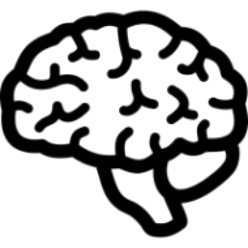The Supreme Court signaled a major shift in its approach to coronavirus-related restrictions late Wednesday, voting 5-4 to bar New York state from reimposing limits on religious gatherings.
The emergency rulings, issued just before midnight, were the first significant indication of a rightward shift in the court since President Donald Trump’s newest appointee — Justice Amy Coney Barrett — last month filled the seat occupied by liberal Justice Ruth Bader Ginsburg, who died in September.
Source: Major shift at Supreme Court on Covid-19 orders – POLITICO
Why is it a “rightward shift” to reinforce the single, most-fundamental, undergirding tenant upon which this country was founded? The people who settled this country were religious zealots who refused to be told what to do and how to do it when it came to practicing their belief in God, and they formed an entire country based on that premise. From the Declaration to the Constitution to everything that followed, not being told what to do when it comes to religion is about as American an idea as anything, and perhaps what makes this country unique. That principle of refusing to be told what to do has flowed through everything else that’s followed, from the South’s secession, to the gold rush and the Wild West, to people who refuse to wear masks.
Many people still think the “freedom of religion” — and all that this phrase implies — is the most-valuable protected right in the Constitution. The people who don’t like it may think this needs to be changed. That’s fine. There’s a process for that, and they can avail themselves of it. It’s been done several times before. But I’m quite certain that those who would want to repeal the First Amendment (or, at least, retract the clause about religion) understand just how the daunting that prospect is, and that this is perfectly indicative of how unpopular and difficult this would be.
The freedom to express your religion is just about as fundamental to speech and assembly as possible. They’re all intertwined. So, as long as the First Amendment stands in effect, the idea that anyone can tell anyone else how or when or where to worship God as they see fit has to be rejected.
The First Amendment is not a “privilege” bestowed by the government, to be revoked during times of crisis or inconvenience. The First Amendment is a restriction on government power, recognizing the inalienable rights of the governed. It’s a subtle difference that consistently confuses a lot of people.
UPDATE: A former federal judge, law professor, and director of the Constitutional Law Center at Stanford Law School, wrote an op-ed at the Times, saying basically the same thing I’ve said here: the issue is of paramount Constitutional importance, superseding even global pandemics.
That message is lost if the case is seen as the mere product of Justice Amy Coney Barrett’s arrival at the Supreme Court. With the presidential election behind us, the balance between Covid-19 precautions and civil liberties no longer needs to be a partisan issue. The right to exercise religion in accordance with conscience is one of the most important in the Bill of Rights, and it is time for mayors and governors — and courts — to treat it that way.
